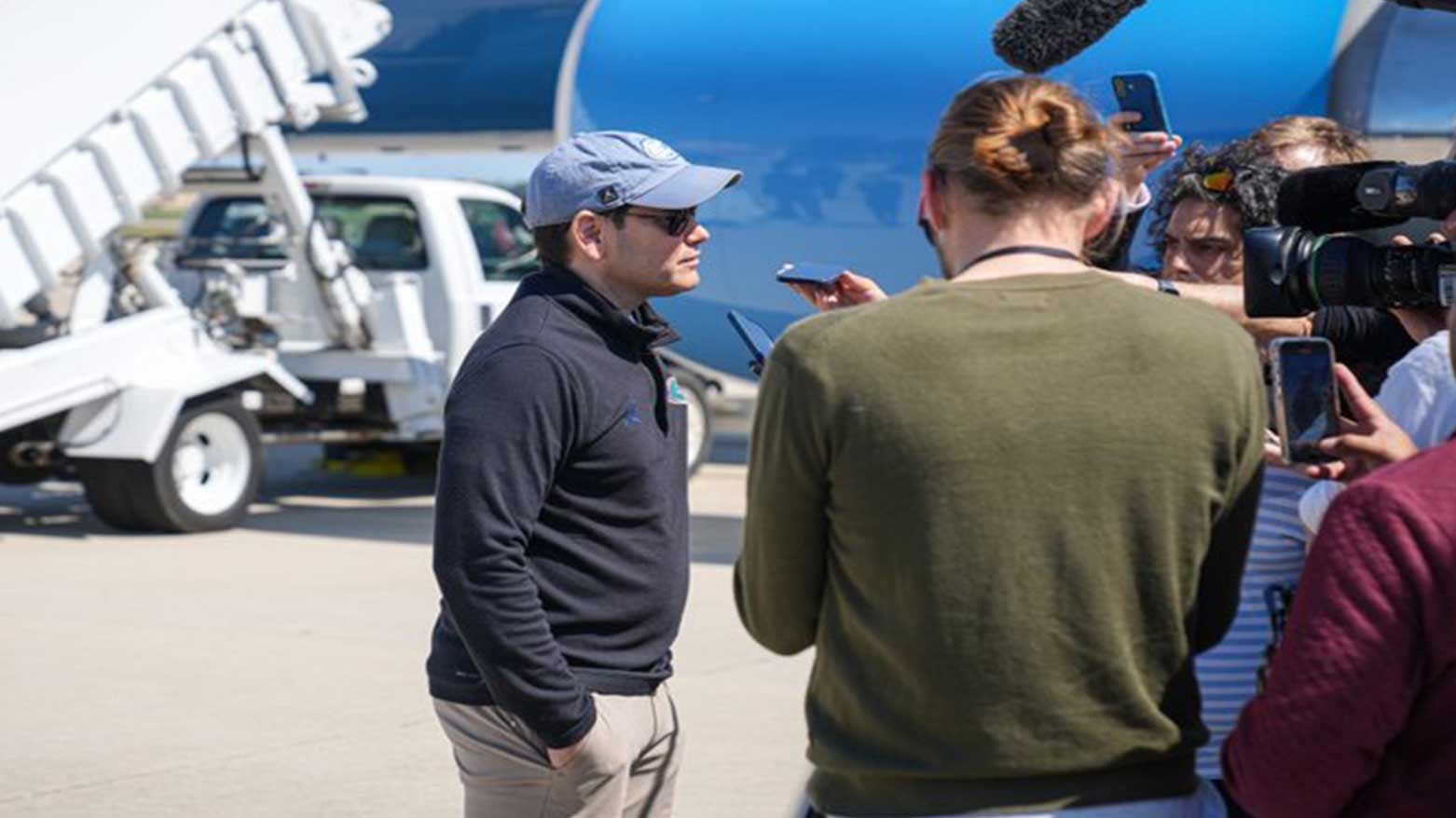US “Not Happy” About Israeli Strikes in Qatar, But Alliance Remains Intact, Rubio Says
Rubio’s trip to the Middle East comes ahead of a UN summit led by France, where several Western nations plan to recognize a Palestinian state.

ERBIL (Kurdistan24) — The United States expressed displeasure over Israeli air strikes targeting Hamas leaders in Qatar, but Secretary of State Marco Rubio stressed Saturday that the attack would not alter Washington’s allied relationship with Israel.
Tuesday’s strikes — the first by Israel against a US ally in Qatar — have sent shockwaves across the region, complicating ongoing diplomatic efforts to broker a ceasefire in war-ravaged Gaza.
Speaking to reporters before departing Washington for the Middle East, Rubio said, “What's happened has happened. Obviously, we were not happy about it, and the president was not happy about it. It’s not going to change the nature of our relationship with the Israelis, but we are going to have to talk about it — primarily, what impact does this have” on truce efforts.
Rubio emphasized that dialogue on next steps is crucial, noting that “at the end of the day, when all is said and done, there is still a group called Hamas, which is an evil group.”
"On my way to Jerusalem. My focus will be on securing the return of hostages, finding ways to make sure humanitarian aid reaches civilians, and addressing the threat posed by Hamas. Hamas cannot continue to exist if peace in the region is the goal," Rubio wrote on his official X account on Saturday night.
On my way to Jerusalem. My focus will be on securing the return of hostages, finding ways to make sure humanitarian aid reaches civilians, and addressing the threat posed by Hamas.
— Secretary Marco Rubio (@SecRubio) September 13, 2025
Hamas cannot continue to exist if peace in the region is the goal. pic.twitter.com/60DWTkLSfC
Israeli Perspective
The strikes targeted Hamas leaders in Qatar who were reportedly meeting to discuss a new ceasefire proposal put forward by the Trump administration.
Israeli Prime Minister Benjamin Netanyahu defended the operation, claiming that removing Hamas leadership would end the war in Gaza and facilitate the release of hostages.
“The Hamas terrorist chiefs living in Qatar don’t care about the people in Gaza. They blocked all ceasefire attempts in order to endlessly drag out the war. Getting rid of them would rid the main obstacle to releasing all our hostages and ending the war,” Netanyahu wrote on his official X account Saturday evening.
The Hamas terrorists chiefs living in Qatar don't care about the people in Gaza.
— Benjamin Netanyahu - בנימין נתניהו (@netanyahu) September 13, 2025
They blocked all ceasefire attempts in order to endlessly drag out the war.
Getting rid of them would rid the main obstacle to releasing all our hostages and ending the war.
Diplomatic Tensions and Upcoming UN Summit
Rubio’s visit comes just days before a United Nations summit led by France on September 22, during which several Western nations plan to recognize a Palestinian state in the West Bank. France, critical of Israel’s ongoing offensive in Gaza, has rejected US and Israeli criticism, calling for a new approach to Palestinian statehood.
The United Nations summit is expected to mark a turning point in Middle East diplomacy. Jointly led by France and Saudi Arabia, the meeting follows the overwhelming adoption of the “New York Declaration,” a resolution calling for a phased and time-bound plan to revive the two-state solution.
Several Western and European countries — including France, the United Kingdom, Canada, Australia, and Belgium — are preparing to formally recognize a Palestinian state during or shortly after the summit.
The timing of the event is particularly sensitive, coming amid deepening international criticism of Israel’s military operations in Gaza and growing concern over the humanitarian crisis, now further complicated by Israel’s unprecedented strikes on Hamas leaders in Qatar.
This convergence of diplomatic and political pressure underscores the urgency with which world powers are seeking a new path for peace in the region.
In Jerusalem, Rubio Reaffirms Israel Ties as Global Patience Wears Thin
The U.S. State Department indicated that Rubio will discuss “operational goals and objectives” with Israeli officials and reaffirm US commitment to Israel’s security. Additionally, Rubio is set to participate in the inauguration of a new tunnel in Jerusalem’s Old City, which provides access to the Temple Mount — a site sacred to both Jews and Muslims.
Rubio stressed that his visit to the tunnel will focus on the “City of David,” distinct from the Al-Aqsa compound.
Taken together, the Israeli strikes in Qatar, Washington’s uneasy response, and the looming UN summit reveal the widening cracks in international diplomacy over Gaza. While the United States continues to affirm its alliance with Israel, mounting pressure from Europe and Arab states signals that global patience is wearing thin.
As Secretary of State Marco Rubio begins his Middle East visit, the challenge will be not only to reassure Israel but also to navigate a shifting international landscape where calls for Palestinian statehood are rapidly moving from rhetoric to reality.